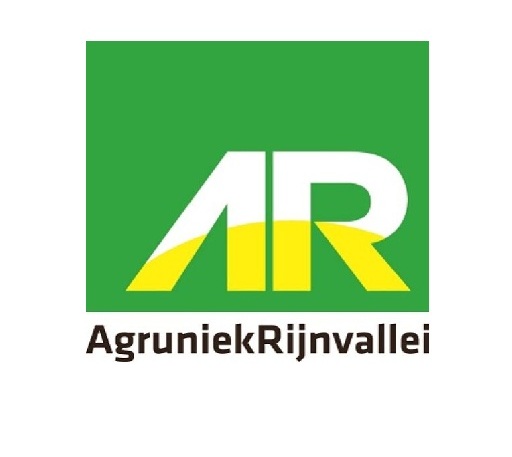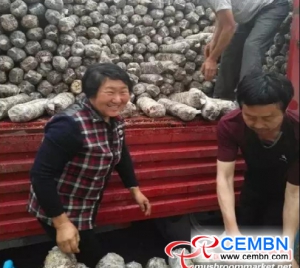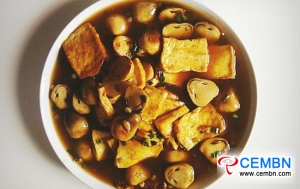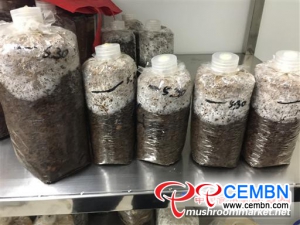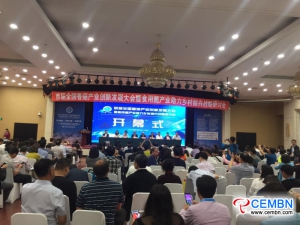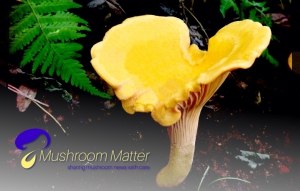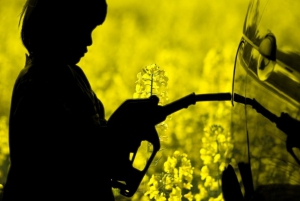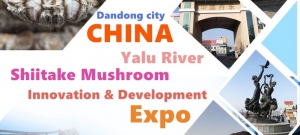
Mushroom Matter
Welcome on our platform. Why MUSHROOM MATTER? Because mushrooms play an important role in our lives as well in business. Our goal is to bring the world the very latest mushroom news with the upmost care to support the positioning of our beloved Mushroom.
Trial summer mushroom production was launched
On June 15, in mushroom base managed by Henan Daoyi Agricultural Technology Co., LTD, the first batch of summer mushroom production was formally launched.
In 2018, Daoyi Company adopts the mode of partially-full load, the estimated annual production capacity on Shiitake mushroom attains 110,000 sticks and the estimated gross output on fresh mushroom comes to 120,000 kg.
“After the successfuly termination of this batch of production, 214 poor households are targeted to generate annual incomes of 3000 CNY per household,” introduces marketing manager of Daoyi Company warmly.
Orders have increased ten-fold at the hydroponic mushroom farm since in the last eight months
Yoshinobu Odaira, 69, is the chief executive of Shogun Maitake Canada Limited, a London, Ont.-based hydroponic mushroom farm that's seen sales rise dramatically in the last eight months.
Not many mushroom farms can say they get regular visits from people suffering from cancer, but Shogun Maitake Canada is not your average mushroom farm.
It's one of the few growers in North America that offer top quality maitake mushrooms, a frilly, leathery, wild-looking fungi steeped in ancient Japanese myth that is as prized by foodies for their delicate flavour and texture as it is are by health nuts.
The mushroom has a reputation for lowering blood pressure, cholesterol, boosting the immune system. It's even being studied by scientists as a potential cancer-killer.
Read full article here
Author: Colin Butler · CBC News
Amongst all the mushroom varieties, Shiitake holds the weakest growth trend. Under the unremitting endeavour of technical staffs working in Beijing Agricultural Technology Promotion Station, by now, production of liquid spawn on the majority of varieties such as Enoki, King oyster mushroom, Black fungus and Oyster has been realized, which is of great significance to stimulate the development of mushroom industry.
In order to do a great job on production of liquid spawn of Shiitake mushroom, by the research on selection of strain formula, technical links of strain cultivation and inoculation technology, preliminary result has been obtained by now. Liquid spawn shaken by magnetic stirrer carries robust mycelia and even balls. However, time for cultivation time is a little bit longer, and hence a further experimental study or investigation is needed so as to reduce the spawn-running period of strain.
The First National Shiitake Industry Innovation Development Meeting boosts rural revitalization
For pushing the innovative development, communication, cooperation of China’s Shiitake industry and lifing its market competitiveness, The First National Shiitake Industry Innovation Development Meeting sponsored by China Edible Mushroom Business Net and China Township Enterprises Association was splendidly held during 6-8th, June in Dandong City, Liaoning Province of China.
This time of meeting attracted the participation of over 2000 colleagues engaging in Shiitake industry, and over 10 distributing businesses coming from above 10 nations and regions such as Japan, Korea and North Korea.
During the meeting, “2018 Investigation Report on China’s Shiitake Industry” was freshly released. According to the report, in 2017, gross output on Shiitake mushroom came to 9.2589 million tons in China, which shows 10.84% of growth rate compared with 2016 (8.3535 million tons). And during over 8 years of period, average annual growth rate on gross output of Shiitake mushroom also hits 16.64% in China.
China holds over 800 years of history on Shitake cultivation, now, region of the cultivation has spread to the majority of provinces, cities and autonomous areas within the nation. In recent years, Shiitake mushroom has been grasped as one of the leading varieties that boost precise poverty alleviation, and it keeps on playing a positive and promoting effect on growth of agricultural efficiency, growth of farmers’ income and rural revitalization. Meanwhile, a series of problems on strained supply of raw materials, low intensive level, poor market circulation exist in strain selection, technical innovation, production management and market construction of China’s Shiitake industry. Consequently, we need more communication and study so as to positively figure solutions out, break development bottleneck and realize innovative and sustainable development.
This time of meeting seized "Promoting the Innovation, Transforming the Function and Stimulating the Development" as the theme, embraced on many hot issues such as production and processing technology of Shiitake mushroom, building of product brand and construction of circulation channel.
Hailed as “The Largest and The Most Beautiful Border City in China,” Dandong City situates in southeast of Liaoning Province, it is the key intersection between Northeast Asia Economic Circle and Economic Circle of Bohai and Yellow Sea. In recent years, Dandong City insists on vigorously developing anti-season mushroom production by virtues of local natural environment and geographic traffic. As scale of local mushroom industry goes from strength to strength, mushroom production has become the leading industry which promotes local masses to generate incomes and increase foreign exchange through export, and it breeds big market potential.
During the meeting, a series of innovative results were brillantly displayed while over 100 exhibitors showed up with their newly-developed equipment and deep-processed products that include Shiitake Spawn, Equipment, Supplies and so on. The successful conclusion of The First National Shiitake Industry Innovation Development Meeting will surely promote the achievement transformation of new products and new technology on China’s Shiitake Industry, and stimulate its transformation and upgrading.
It was time, time to make a change in order to further develop our news platform as well as reinvent ourselves.
One year ago we decided to continue the platform of our appreciated collegue Gerard Speel, who sadly passed away beginning of 2017. We kept the name and logo, but build a complete new responsive news platform to offer you all the latest digital techniques and opportunities to read the news in the best way possible. Since a few months we felt that change was coming and that the name and logo did not further fit into our plans. To make the neccessary steps to further grow and develop our platform, we are happy to announce our new name, logo and slogan!
Why MUSHROOM MATTER? Because mushrooms play an important role in our lives as well in business. Our goal is to bring you the very latest mushroom news with the upmost care to support the positioning of our beloved Mushroom.
Let’s grow together!
If you want to know more about our strategy, learn more about our (future) plans, please feel free to contact us via This email address is being protected from spambots. You need JavaScript enabled to view it..
Researchers at the National University of Singapore have discovered a revolutionary way to transform mushroom waste into biofuel. Despite claims to the contrary, biofuel — typically derived from food crops — is often more environmentally-destructive than it is helpful. This new technique could change that by harvesting energy from waste produced in the process of mushroom cultivation. In a study published in Science Advances, researchers explain how Thermoanaerobacterium thermosaccharolyticum (TG57), a common bacterial byproduct of mushroom cultivation, can be isolated and used to convert plant-based cellulose into biobutanol. Biobutanol is a biofuel that can be used by vehicles designed to run on gasoline.
For full article, please read here
Source: Inhabitat
The First National Shiitake Industry Innovation Development Meeting grabs your attention
In order to push the innovative development, communication and cooperation of China’s Shiitake industry, The First National Shiitake Industry Innovation Development Meeting sponsored by China Edible Mushroom Business Net and China Township Enterprises Association will be held on 6-8th, June in Dandong City, Liaoning Province of China.
China holds over 800 years of history on Shitake cultivation. Now, region of cultivation has spread to the majority of provinces, cities and autonomous areas in China. In 2016, China’s gross output on Shiitake mushroom came to 9 million tons or so, which accounted for 25% of gross mushroom output.
Over the years, Shiitake mushroom has been grasped as one of the leading varieties that boost precise poverty alleviation, and it keeps on playing a positive and promoting effect on growth of agricultural efficiency, growth of farmers’ income and rural revitalization. Meanwhile, a series of problems on strained supply of raw materials, low intensive level, poor market circulation exist in strain selection, technical innovation, production management and market construction of China’s Shiitake industry. Consequently, we need more communication and study so as to positively figure solutions out, break development bottleneck and realize innovative and sustainable development.
This time of meeting seizes "Promoting the Innovation, Transforming the Function and Stimulating the Development" as the theme, embraces on many hot issues such as production and processing technology of China’s Shiitake mushroom, building of product brand and construction of circulation channel. Besides, a visiting to a Shiitake base is also in planned arrangement during the course.
Hailed as “The Largest and The Most Beautiful Border City in China,” Dandong City situates in southeast of Liaoning Province, it is the key intersection between Northeast Asia Economic Circle and Economic Circle of Bohai and Yellow Sea. In recent years, Dandong City insists on vigorously developing anti-season mushroom production by virtues of local natural environment and geographic traffic. As scale of local mushroom industry goes from strength to strength, mushroom production has become the leading industry which promotes local masses to generate incomes and increase foreign exchange through exports, and it breeds big market potential.




